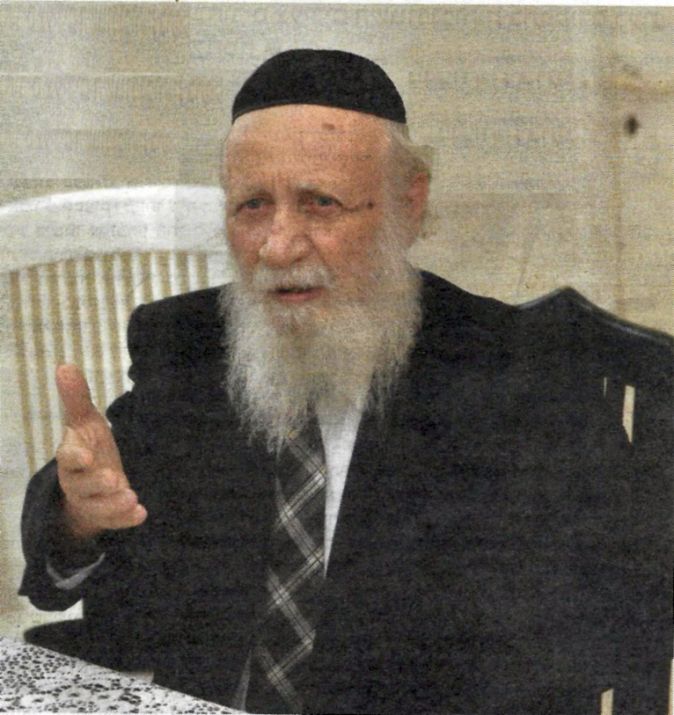
"We find ourselves at the present at the beginning of a period of forty days," are the opening words of HaRav Nosson Zochovsky shlita.
These forty days, from Rosh Chodesh Elul until after Yom Kippur. are divided into two sections: thirty up until Rosh Hashonoh and ten inclusive are the Aseres Yemei Teshuva. The reason behind the division is because Elul is the time for reflection upon the past year and introspection on how to improve our conduct in the coming year. During the two days of the new year, we are expected to shoulder new resolutions to be adopted and implemented in the upcoming year.
In addition, we must bear in mind that in all Jewish communities, Torah students return to their yeshivos and various places of study. I once heard HaRav Zelivansky say that the day when students resume their study in the tents of Torah is a most favorable time. It offers the opportunity for one to ask for success in study and for spiritual advancement.
When the aron kodesh containing the Sifrei Torah is opened, we recite the prayer of Brich Shmei - Blessed is the Name... The Zohar in Parshas Vayakhel notes that when the ark is opened to remove a Sefer Torah to be read for the congregation, the Gates of Lovingkindness are opened in Heaven and a deep love is generated Above, which a person is obligated to seize the opportunity of learning Torah and latching on to the great love of Hashem for His people.
Similarly, when in all the Jewish communities are applying themselves again to renewed study, great love is generated. This day is especially propitious for a Torah student to pray and ask that he succeed in elevating himself and persisting in a continuous ascent for the coming year.
This year, Elul is the culmination of a very difficult year, both spiritually and materially. How is this Elul of 5784 supposed to look?
HaRav: How true it is that this past year has been one of tribulation, partly because of the harsh decrees made against the public of Torah scholars and the shameful regard for them and their means of livelihood. The harrowing war has placed us in a dire position. Truly, Elul and the month of preparation for the upcoming year obligates each one of us to a different, more intense approach, of a more studied introspection.
Have we not seen this year all of the phrases in Nesaneh Tokef realized in the flesh? This Elul is much different than that of previous years.
Over seventy years ago, as a young student, I and a group of fellow students used to attend the Motzei Shabbos talks of HaRav Yechezkel Levenstein, which he delivered in his home in Yerushalaim. I can still visualize him seated by the table, a kerosene lamp illuminating the room, surrounded by his students from Shanghai, standing in awed reverence. His talks were also attended by HaRav Gedaliah Eiseman and some of his students from Yeshivas Kol Torah. Our group represented Yeshivas Chevron.
I recall a shmuess he delivered on Motzei Rosh Hashonoh. "Our equanimity regarding these Yomim Noraim stem from a simple reason. We think to ourselves that just as we survived this past year since last Rosh Hashonoh when things were calm, so, too, will the coming year take its course with no mishaps for me and everyone else.' The feeling of what was will mirror the coming year of what will be is what causes many people throughout the world to feel secure."
HaRav Levenstein added, "But who knows how we really did this past year and what we lost."
In this short sentence, Maran zt"l gave us a key to get out of the apathy and complacency that characterize us and this is still relevant to our Elul this year.
From the perspective of the goodness of HaKodosh Boruch Hu, there did not have to be even the slightest pain or agmas nefesh. The chassodim of Hashem Yisborach would provide us with all we need to do Torah and mitzvos, without any negative feelings at all. All of the pain and suffering that people had, whether the individuals or the community as a whole, are the result of the judgement last year on Rosh Hashonoh.
Knowing this, how can one be complacent? Who knows how much pain and agmas nefesh he can avoid for himself and even for the community as a whole, if he strengthens himself — even a little bit.




